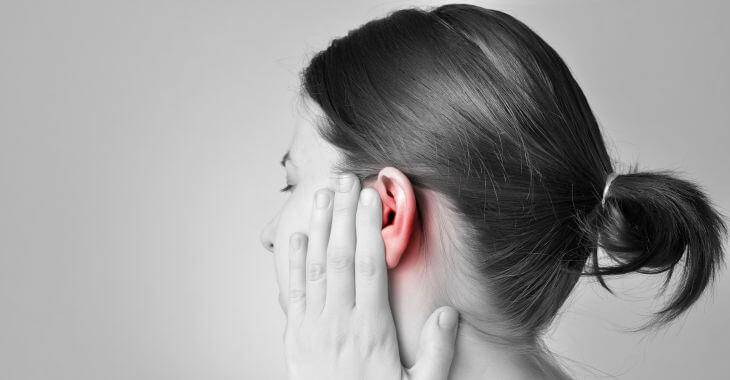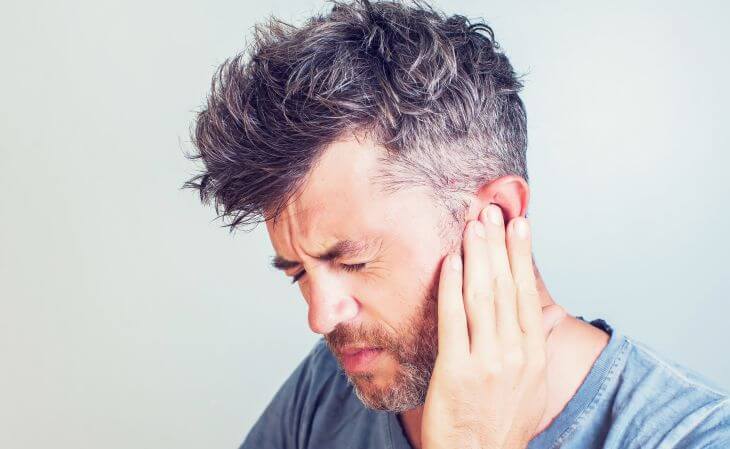Hot Ears, High Blood Pressure: Are They Related?

Hot ears and high blood pressure may seem unrelated at first glance, but understanding their connection can offer insights into your health. Are hot ears a sign of high blood pressure? Let’s explore the causes, possible links, and related symptoms like tinnitus.
What Causes Hot Ears?
Hot ears happen when blood vessels in the ear expand, increasing blood flow. This can occur due to stress, hormonal shifts, physical exertion, or even an allergic reaction. The sensation may feel warm or burning and is sometimes accompanied by redness.
In many cases, hot ears are harmless and temporary. However, when hot ears occur frequently or alongside other symptoms, they might suggest an underlying issue. This has led some to wonder if high blood pressure could be a contributing factor.
High blood pressure affects the vascular system, potentially influencing blood flow to the ears. While not a direct symptom, the connection between hot ears and high blood pressure deserves closer examination.
Are Hot Ears a Sign of High Blood Pressure?
Are hot ears a sign of high blood pressure? The answer is not straightforward. There isn’t strong medical evidence directly linking hot ears to hypertension, but the body’s response to elevated blood pressure may offer clues.
Hypertension puts extra strain on blood vessels, which can sometimes result in redness or warmth in areas like the face and ears. Stress-induced spikes in blood pressure can also cause temporary sensations of heat or flushing.
If hot ears coincide with other symptoms like headaches, dizziness, or chest discomfort, it could be worth investigating further. A blood pressure reading can help determine whether hypertension is a concern.
It’s also important to note that hot ears alone are rarely an indicator of high blood pressure. They’re more likely a sign of another issue unless accompanied by other cardiovascular symptoms.
How Stress and Blood Pressure Impact Hot Ears
Stress is a common trigger for both hot ears and high blood pressure. When stressed, the body releases hormones that increase heart rate and blood flow, which can cause flushing or warmth. This temporary rise in blood pressure might make hot ears more noticeable.
Chronic stress can contribute to long-term blood pressure issues, amplifying related symptoms. If hot ears occur frequently during stressful periods, they may be linked to temporary blood pressure changes.
Managing stress through relaxation techniques like meditation, deep breathing, or yoga can help minimize both blood pressure spikes and associated symptoms.
Can High Blood Pressure Cause Tinnitus?
Another ear-related concern linked to hypertension is tinnitus. This condition involves hearing ringing, buzzing, or hissing sounds, which may become more pronounced in quiet environments. Can high blood pressure cause tinnitus? The answer is yes.
Hypertension can affect blood flow to the inner ear, where tiny blood vessels play a role in hearing. When blood pressure is elevated, these vessels may become strained, leading to disturbances like tinnitus.
Pulsatile tinnitus, where the ringing matches your heartbeat, is often associated with high blood pressure. While not directly related to hot ears, tinnitus is another reason to monitor cardiovascular health closely.
Treating high blood pressure can reduce the risk of developing tinnitus or prevent it from worsening. This includes lifestyle changes, regular exercise, and prescribed medications when necessary.
Other Symptoms That May Indicate High Blood Pressure
In addition to tinnitus and occasional hot ears, hypertension can cause various symptoms that shouldn’t be ignored. These include frequent headaches, nosebleeds, blurred vision, or chest pain. However, many people with high blood pressure experience no symptoms at all.
If you notice recurring ear-related sensations alongside other signs of poor circulation or cardiovascular strain, it’s important to seek medical advice. Early diagnosis is key to preventing complications like heart disease or stroke.
When to See a Doctor
If hot ears are frequent or accompanied by other symptoms like dizziness, tinnitus, or flushing, it’s time to consult a healthcare provider. They can assess whether high blood pressure or another issue is the cause.
Doctors often recommend regular blood pressure monitoring to catch hypertension early. Keeping track of any triggers or patterns for hot ears and tinnitus can help guide your medical evaluation.
Don’t ignore persistent symptoms. They could indicate more serious health concerns, even if they seem minor at first. Addressing them early can prevent long-term complications.
Tips for Managing High Blood Pressure and Symptoms
Managing high blood pressure involves lifestyle changes that benefit overall health. A balanced diet rich in fruits, vegetables, and whole grains supports healthy blood vessels. Reducing salt intake can also help keep blood pressure in check.
Regular physical activity, such as walking, swimming, or yoga, improves circulation and reduces stress. Avoiding smoking and limiting alcohol consumption are also critical steps in maintaining heart health.
If symptoms like tinnitus or hot ears persist, talk to your doctor about treatment options. Medications may be necessary to control blood pressure and minimize related issues.

Hot ears and high blood pressure may share certain triggers, like stress or circulatory changes, but the connection isn’t always direct. Are hot ears a sign of high blood pressure? Not definitively, but they can accompany other symptoms worth discussing with a healthcare provider.
If you’re experiencing hot ears or tinnitus regularly, don’t hesitate to seek medical advice. These sensations may provide important clues about your overall health.
The information provided on this website, including text, graphics, images, and other materials, is intended solely for informational purposes and should not be used as a substitute for professional medical advice, diagnosis, or treatment.




)